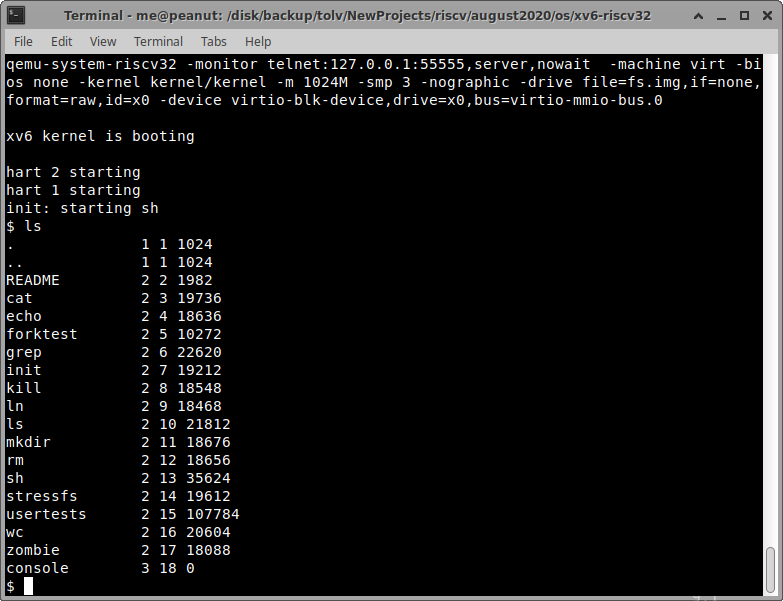RISC V operating systems
Some of my master project students will work on porting different operating systems (Oberon, Plan 9 and Inferno) to 32-bit RISC V-based systems. The limitation to 32-bit means that it should be possible to run the ported systems on small FPGA-based boards, such as the ultraembedded RISC V SoC running on a Digilent Arty board (based on a Xilinx Artix 7 FPGA) or a Radiona ULX3S, which uses a Lattice ECP5 FPGA and is supported by the open source symbiflow Verilog toolchain.
To provide my students with a bit of example code, an existing more-or-less complex OS running on RISC V would be nice to have. One well executed and documented teaching OS is MIT's xv6, a reimplementation of 6th edition Unix in modern C which is missing some features not that relevant for an OS course (or left as an exercise for the students).
There is a port of xv6 available for 64-bit RISC V. This doesn't work out of the box for 32-bit RISC V (RV32I), since the size of data types and registers is obviously different and the virtual memory management is different (sv32 instead of sv39). Thus, I created a RV32I port of xv6 on a rainy afternoon here in Trondheim. This version currently runs in qemu, I'm working on a port to the ultraembedded RISC V SoC. Here's the most boring screenshot ever ;-).

My small project seems to have found at least one interested person. Jim Huang has re-based my port to have proper diffs against the 64-bit xv6 port and might use it for one of his courses:
Nince to see this is useful for people on the other side of the world ;-).
Tags: RISC V, xv6, operating system